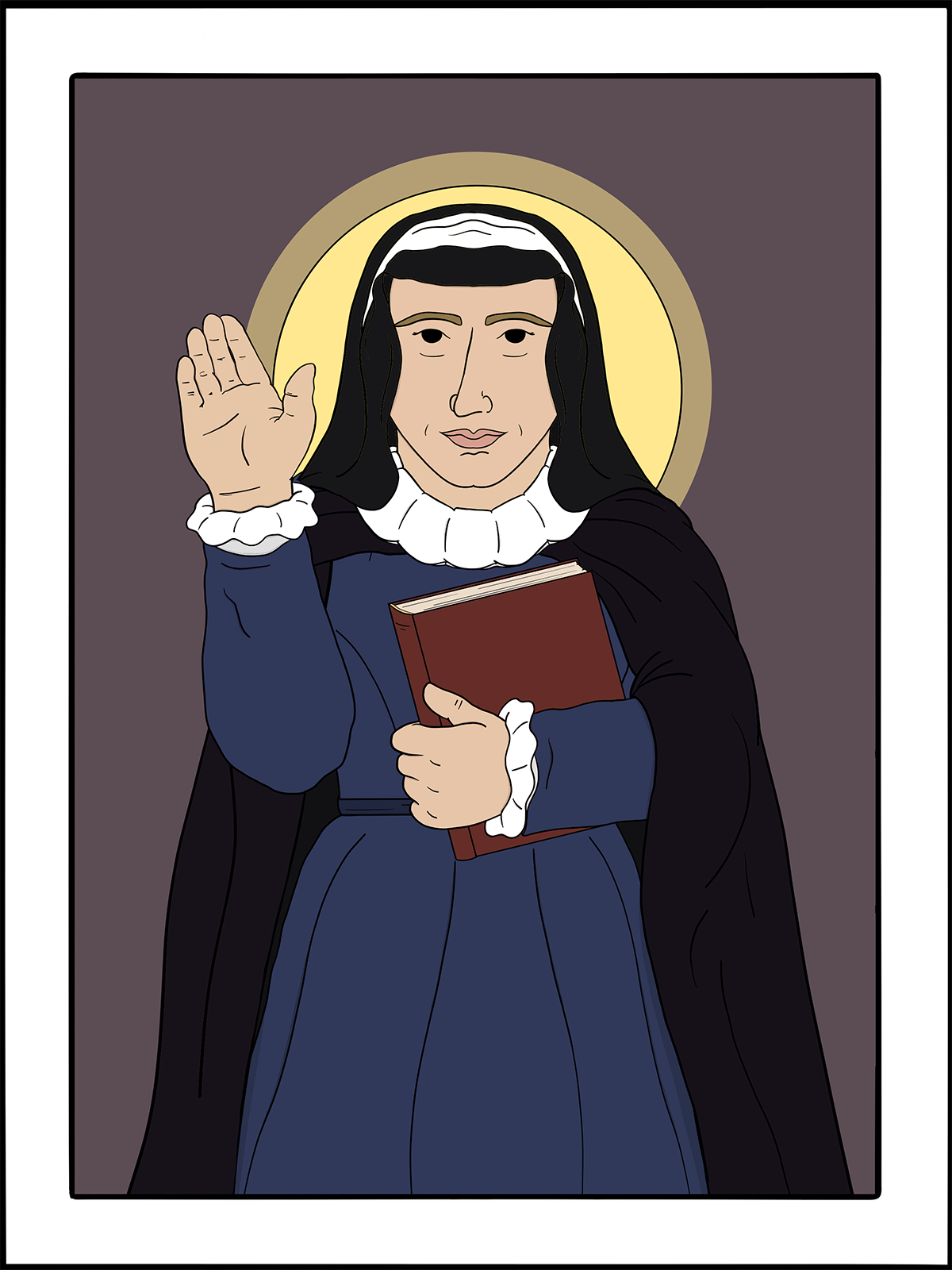
September 15
Catherine of Genoa
Mystic and Nurse, 1510
art by Rev. Kirsten Kohr of Geneva, Ohio Gracious God, reveal to your church the depths of your love; that, like your servant Catherine of Genoa, we might give ourselves in loving service, knowing that we have been perfectly loved by you; through Jesus Christ our Lord. Amen.
Catherine of Genoa is remembered both for her ministry of nursing the sick during repeated plagues and also for the works that she wrote recounting her mystical experiences. Her writings became widely known when they were made the subject of Baron Friedrich von Hügel’s classic work The Mystical Element of Religion (1908).
Catherine was born in Genoa, Italy, in 1447, the youngest of five children. As a teenager, Catherine wanted to become a nun, but her application to the convent was denied. Instead, she was married at the age of 16 to Giuliano Adorno as part of an attempt to end the feud between their two families. The couple were initially miserable together. Giuliano was angry, unfaithful, and lost most of their money through gambling and reckless spending. Catherine spent the first ten years of her marriage in a deep depression, praying that God would strike her with a great sickness so that she could remain in bed all day.
The trajectory of her life was changed on March 22, 1473, when she had a sudden mystical experience. While she was in church, in the middle of making her confession to a priest, she was suddenly struck with an overpowering sense of the overwhelming love of God. She was so stunned and dazed by this experience that she walked out of the church without even completing her confession. This was the beginning of a life of profound prayer.
Catherine combined a deep and intense contemplative life with an active dedication to caring for the sick in the local hospital. In time, her husband joined her in this work, and the couple became increasingly close to one another through their shared labor for those in need. They eventually moved together into the Pannatome, a large hospital in Genoa, in order to devote themselves completely to caring for the sick there. There Catherine also dictated a number of works of mystical theology, which were published some 40 years after her death.
Catherine insisted that God should be loved only for God’s self, and not for anything that one might expect to receive from him, insisting that “Pure Love loves God without any for.” She also wrote: “All that I have said is nothing compared to what I feel within, the witnessed correspondence of love between God and the soul; for when God sees the soul, as pure as it was in its origins, he tugs at it with a glance, draws it and binds it to himself with a fiery love that by itself could annihilate the immortal soul.”
She died on September 15, 1510, while nursing the sick, and was buried in the hospital chapel.
Excerpted directly from “Lesser Feasts and Fasts 2022,” p. 410-411.

